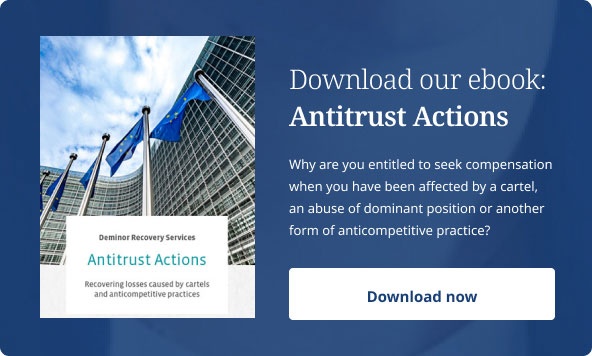On 31 January 2019, the European Commission (“EC”) announced that it had sent a Statement of Objections to eight banks suspected of participating in and operating a cartel that distorted competition when acquiring or selling European government bonds (“EGBs”). If anticompetitive practices are confirmed, banks involved in the scheme would not only have to pay hefty public fines, but acquirers/sellers such as pension funds and insurance groups may also have a private damage claim against the cartelists.
The EC suspects that during periods between 2007 and 2012, eight banks colluded, mainly through online chatrooms, to exchange commercially sensitive information and coordinate on trading strategies. The EC has not yet disclosed the identity of those banks but the Italian bank UniCredit has publicly confirmed that it is under investigation. The Statement of Objections is a formal step in its investigation into a suspected violation of European antitrust rules. The banks will now have access to the EC’s investigative file and will have the opportunity to respond to the Statement of Objections.
Acquirers/sellers of EGBs in the primary and secondary market may have a damage claim against the cartelists
Investors can be harmed as cartels deprive them of the benefits of competition in financial markets: they are not able to trade or invest under the best terms or financial conditions. Since the suspected infringement potentially started in 2007, we advise investors that purchased or sold EGBs at any time between 2007 and 2012 to gather and keep documents evidencing these investments. In case the EC’s investigation concludes that the banks violated EU competition rules, these documents could be required to support a court action to seek compensation for losses caused by the violation.
Potential recovery action by Deminor
Depending on the outcome of the EC’s investigation, Deminor may advise investors who were affected by the cartel to participate in a recovery action.





